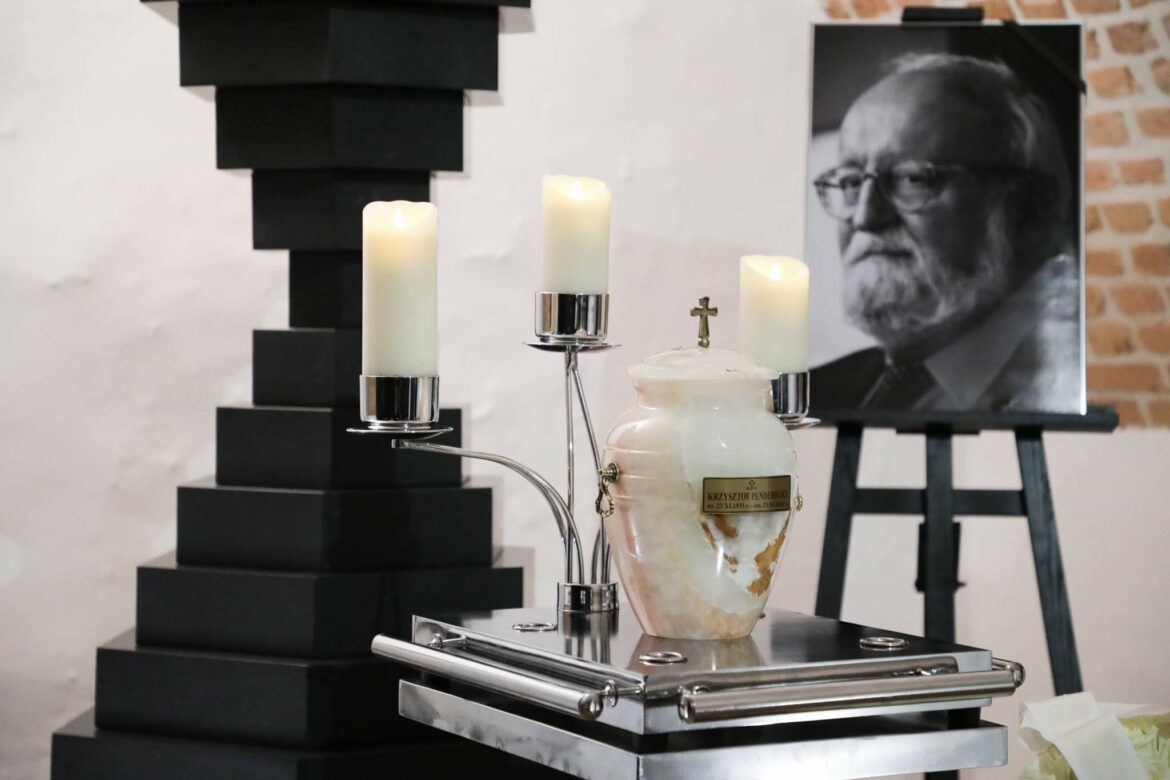During the ceremony of laying Krzysztof Penderecki’s ashes at the National Pantheon in Krakow, which took place on the second anniversary of the composer’s death, Prof. Piotr Gliński, Deputy Prime Minister, Minister of Culture and National Heritage said goodbye to “the great composer, a deeply thinking Pole, a man of extraordinary sensitivity, a bold and generous heart. As a composer, he marked the history of the 20th and 21st centuries. He was a quiet and affectionate man whose wisdom and kindness were hidden behind a subtle smile. He left us his great music,” said Gliński.
The solemn farewell to the artist, in addition to his family and friends, was attended by representatives of the artistic community and the highest state authorities, including Polish President Andrzej Duda, as well as German Ambassador Arndt Freytag von Loringhoven, who read a letter from the President of the Federal Republic of Germany, Frank-Walter Steinmeier.
Recalling the artist’s most important works – “Threnody for the Victims of Hiroshima”, the opera “The Devils of Loudun” or “Polish Requiem”, Deputy Prime Minister Gliński pointed out that the composer touched upon the most important issues in his work, such as the cruelty of power, the history of the Polish struggle for freedom and solidarity, and also the willingness to make the highest sacrifice for them.
The Deputy Prime Minister emphasized that Krzysztof Penderecki gifted Poland not only his exceptional works but also the European Music Center in Lusławice, where the next generations of musicians can study.
In 1960, Krzysztof Penderecki wrote one of his most famous works “Threnody for the Victims of Hiroshima”, after which he began to gain international recognition, especially as a composer of religious music.
In 1969 he composed his first opera “The Devils of Loudun”. In 1980, he began working on one of his greatest works, “Polish Requiem”. It is a composition inspired by the history of Poland. The individual parts of the work concern “Solidarity”, Cardinal Stefan Wyszyński, the Warsaw Uprising, Father Maksymilian Kolbe and the crimes in Katyn. The last part of “Requiem” was dedicated to Pope John Paul II.
Adrian Andrzejewski





